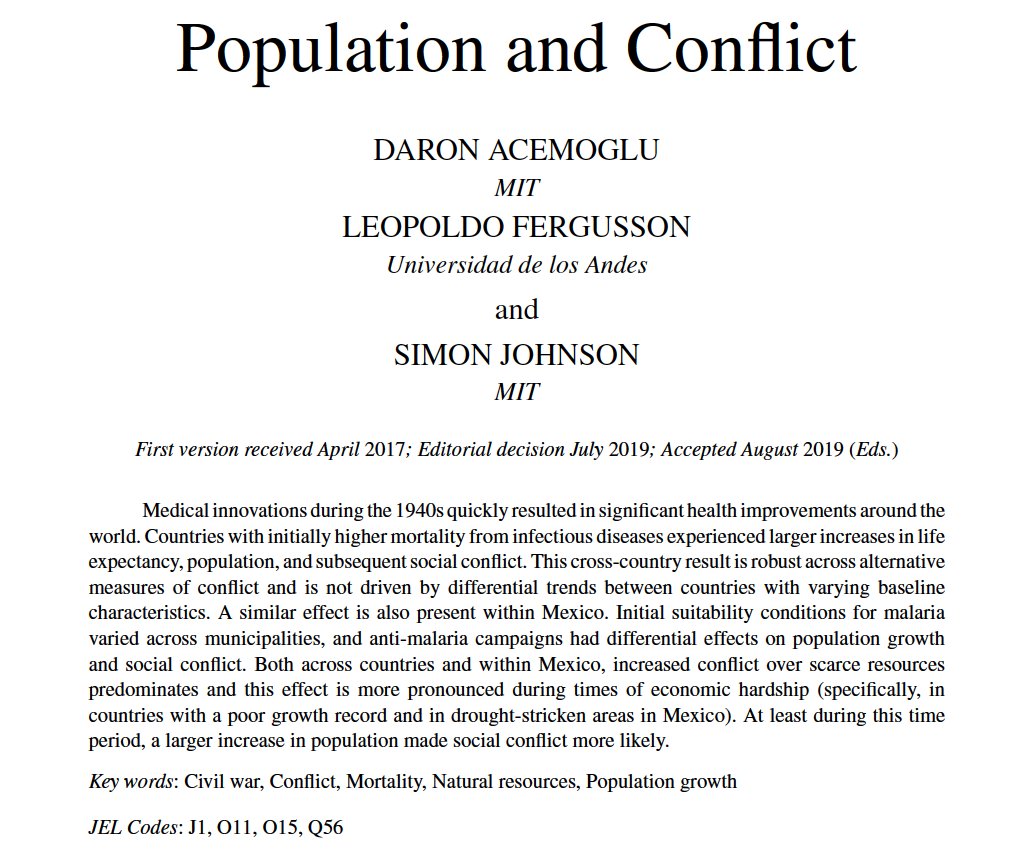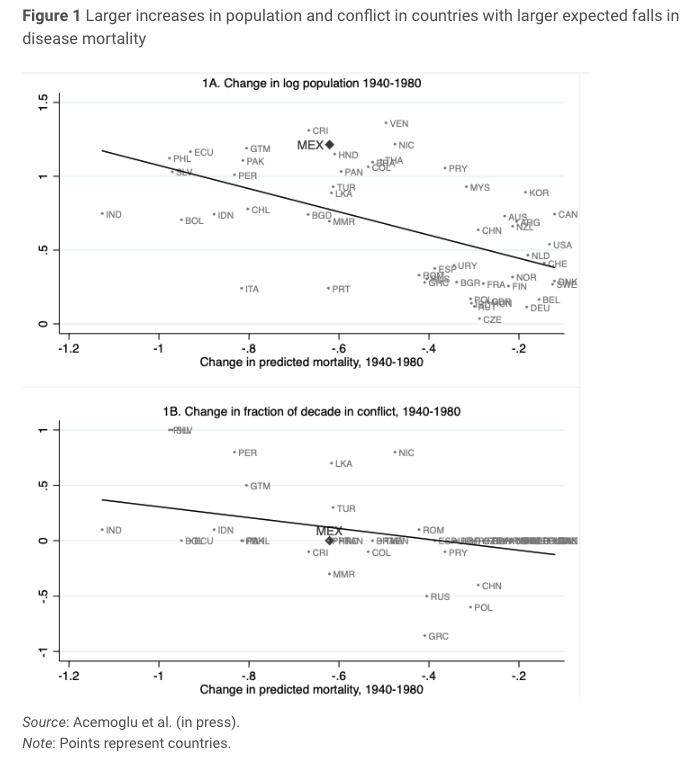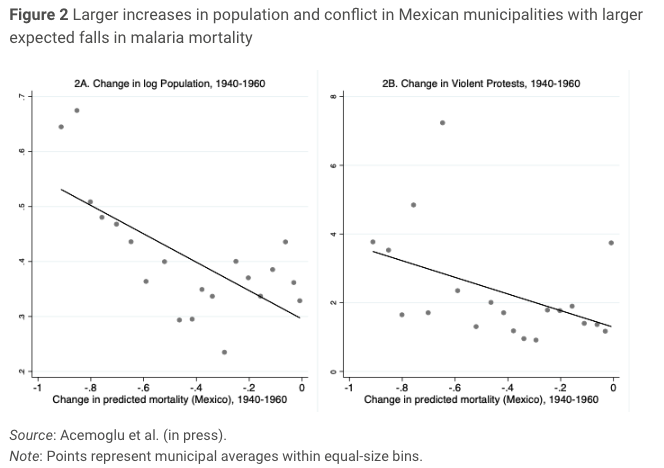I am thrilled to share our work on #population growth and #conflict with @NarrowCorridor ( @DrDaronAcemoglu) and @baselinescene. It is forthcoming at @RevEconStud!
Here: a piece at @vox_dev, the abstract, and https://abs.twimg.com/emoji/v2/... draggable="false" alt="👇" title="Down pointing backhand index" aria-label="Emoji: Down pointing backhand index">a thread with main messages. #EconTwitter #AcademicTwitter
https://abs.twimg.com/emoji/v2/... draggable="false" alt="👇" title="Down pointing backhand index" aria-label="Emoji: Down pointing backhand index">a thread with main messages. #EconTwitter #AcademicTwitter
1/9 https://twitter.com/vox_dev/status/1197841787374620672">https://twitter.com/vox_dev/s...
Here: a piece at @vox_dev, the abstract, and
1/9 https://twitter.com/vox_dev/status/1197841787374620672">https://twitter.com/vox_dev/s...
In brief: population growth increases conflict in a panel of countries and, using within-Mexico variation, violent protests. Suggesting resource competition is key, effects are larger for natural-resource conflicts, slowly growing countries, and areas hit by droughts.
2/9
2/9
Now more details. First, why should we care? One reason is that by 2100 global population is projected to increase by 50%, and most of this growth will occur in areas with weak institutions and many problems (including violence).
3/9
3/9
At least since Malthus, scholars have argued that population pressure may cause conflict, especially with resource scarcity and limited capacities to manage dissent. But there is no consensus, partly for the usual reason that correlation is not causation.
4/9
4/9
We use the international epidemiological transition, when health innovations against some diseases increased population growth where the initial mortality burden from these diseases was highest (Fig 1A). We show that this also translated into more conflict (Fig 1B).
5/9
5/9
Ok, but Malthus? There are many possible channels. But these effects are present in natural-resource conflicts (and not others) and in slowly growing countries (and not others), suggesting the importance of resource competition. Plus, we look at Mexico...
6/9
6/9
Within Mexico, we exploit an ambitious anti-malarial campaign which, as in the cross-country, increased population more in areas most affected by the disease (Fig 2A) and also translated into more conflict in the form of violent protests (Fig 2B).
7/9
7/9
In Mexico, protests concerning natural resources drive our results. Also, the impact is stronger in areas hit by droughts affecting production. Again, this suggests that resource competition is part of the story.
8/9
8/9
In short, population growth may cause conflict, and competition for resources is part of the reason. We take this as a warning to support economic growth and strengthen institutions to handle conflict, especially in the most vulnerable parts of the world.
9/9
9/9

 Read on Twitter
Read on Twitter a thread with main messages. #EconTwitter #AcademicTwitter 1/9 https://twitter.com/vox_dev/s..." title="I am thrilled to share our work on #population growth and #conflict with @NarrowCorridor ( @DrDaronAcemoglu) and @baselinescene. It is forthcoming at @RevEconStud!Here: a piece at @vox_dev, the abstract, and https://abs.twimg.com/emoji/v2/... draggable="false" alt="👇" title="Down pointing backhand index" aria-label="Emoji: Down pointing backhand index">a thread with main messages. #EconTwitter #AcademicTwitter 1/9 https://twitter.com/vox_dev/s..." class="img-responsive" style="max-width:100%;"/>
a thread with main messages. #EconTwitter #AcademicTwitter 1/9 https://twitter.com/vox_dev/s..." title="I am thrilled to share our work on #population growth and #conflict with @NarrowCorridor ( @DrDaronAcemoglu) and @baselinescene. It is forthcoming at @RevEconStud!Here: a piece at @vox_dev, the abstract, and https://abs.twimg.com/emoji/v2/... draggable="false" alt="👇" title="Down pointing backhand index" aria-label="Emoji: Down pointing backhand index">a thread with main messages. #EconTwitter #AcademicTwitter 1/9 https://twitter.com/vox_dev/s..." class="img-responsive" style="max-width:100%;"/>





